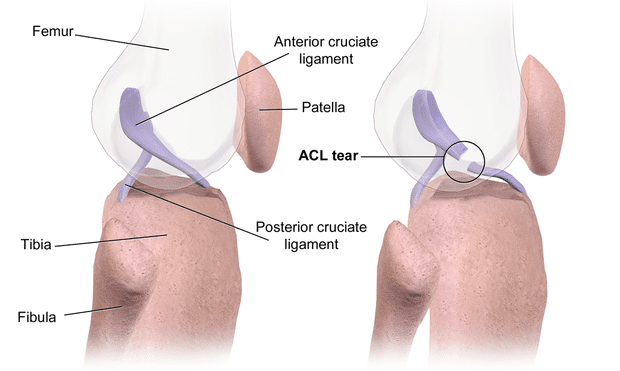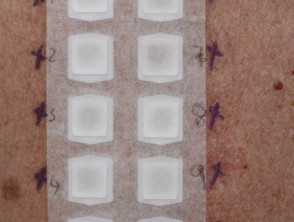Accidents & Violence, Author Interviews, Pediatrics / 18.12.2020
Sledding: Head Injuries are a Serious Concern
MedicalResearch.com Interview with:
Rebecca McAdams, MA, MPH
Senior research associate
Center for Injury Research and Policy
Nationwide Children’s Hospital
Columbus, OH
MedicalResearch.com: What is the background for this study?
Response: Sledding is a popular winter activity in communities across the country, but it may not be as risk-free as many people think.
MedicalResearch.com: What are the main findings?
Response: We found that 220,488 patients were treated in U.S. emergency departments for injuries related to sledding from 2008 through 2017. Nearly 70% of these patients were children age 19 years and younger. Compared to adults, children were almost seven times as likely to be treated in an emergency department for a sledding-related injury.
The majority of patients were injured as the result of a collision (63%). Collision injuries occurred when the patient made contact with an object in the environment (47%), when they hit the ground (16%), or when they ran into another person (10%) or sled (7%).
Head injuries are a serious concern during sledding. The head was the most frequently injured body part for children. In fact, nearly 82% of those who sustained an injury to the head were children. The type of sled can also impact the risk of head injury. Children injured while riding snow tubes and disks had a greater risk of sustaining a concussion or CHI than children who were riding sleds or toboggans. Researchers recommend wearing a helmet while sledding to reduce the risk and severity of head injuries.
While less frequent (3% of all cases), injuries occurring as a result of the sled being pulled by a motorized vehicle such as a car, ATV or snowmobile resulted in more serious injuries that required hospitalization (14%). This practice should be avoided. (more…)



























 Response: LENVIMA (lenvatinib), discovered and developed by Eisai, is an orally available multiple receptor tyrosine kinase inhibitor that inhibits the kinase activities of vascular endothelial growth factor (VEGF) receptors VEGFR1 (FLT1), VEGFR2 (KDR), and VEGFR3 (FLT4). LENVIMA inhibits other kinases that have been implicated in pathogenic angiogenesis, tumor growth, and cancer progression in addition to their normal cellular functions, including fibroblast growth factor (FGF) receptors FGFR1-4, the platelet derived growth factor receptor alpha (PDGFRα), KIT, and RET.
LENVIMA is approved in combination with everolimus for the treatment of patients with advanced renal cell carcinoma (RCC) following one prior anti-angiogenic therapy. The approved starting dose for LENVIMA is 18 mg daily. The objective of Study 218, a randomized, open-label, Phase 2 trial, was to assess whether the lower starting dose of LENVIMA (14 mg daily) in combination with everolimus (5 mg daily) would provide similar efficacy with an improved safety profile compared to the FDA-approved starting dose of LENVIMA (18 mg daily) plus everolimus (5 mg daily) in patients with advanced renal cell carcinoma (RCC) following prior treatment with an antiangiogenic therapy.
In the US, LENVIMA is also indicated for:
Response: LENVIMA (lenvatinib), discovered and developed by Eisai, is an orally available multiple receptor tyrosine kinase inhibitor that inhibits the kinase activities of vascular endothelial growth factor (VEGF) receptors VEGFR1 (FLT1), VEGFR2 (KDR), and VEGFR3 (FLT4). LENVIMA inhibits other kinases that have been implicated in pathogenic angiogenesis, tumor growth, and cancer progression in addition to their normal cellular functions, including fibroblast growth factor (FGF) receptors FGFR1-4, the platelet derived growth factor receptor alpha (PDGFRα), KIT, and RET.
LENVIMA is approved in combination with everolimus for the treatment of patients with advanced renal cell carcinoma (RCC) following one prior anti-angiogenic therapy. The approved starting dose for LENVIMA is 18 mg daily. The objective of Study 218, a randomized, open-label, Phase 2 trial, was to assess whether the lower starting dose of LENVIMA (14 mg daily) in combination with everolimus (5 mg daily) would provide similar efficacy with an improved safety profile compared to the FDA-approved starting dose of LENVIMA (18 mg daily) plus everolimus (5 mg daily) in patients with advanced renal cell carcinoma (RCC) following prior treatment with an antiangiogenic therapy.
In the US, LENVIMA is also indicated for:

